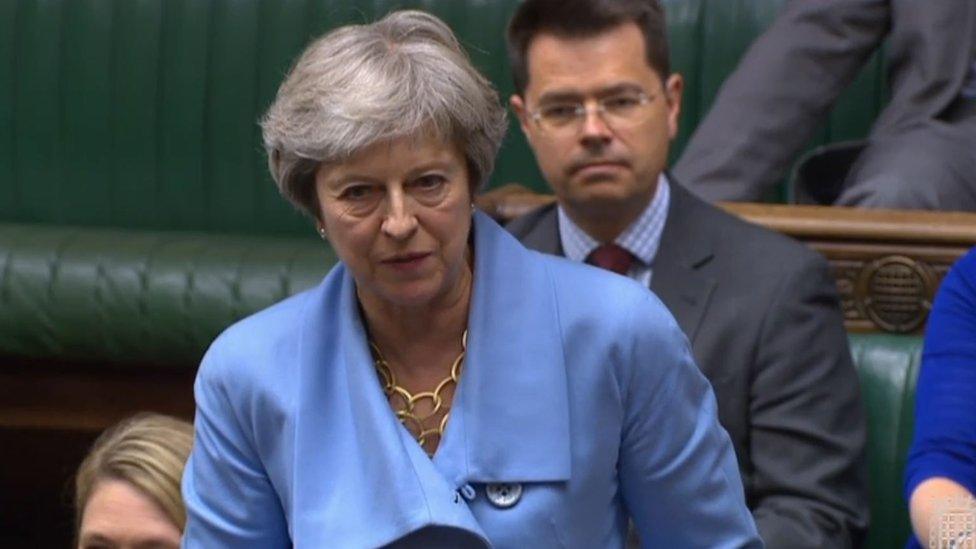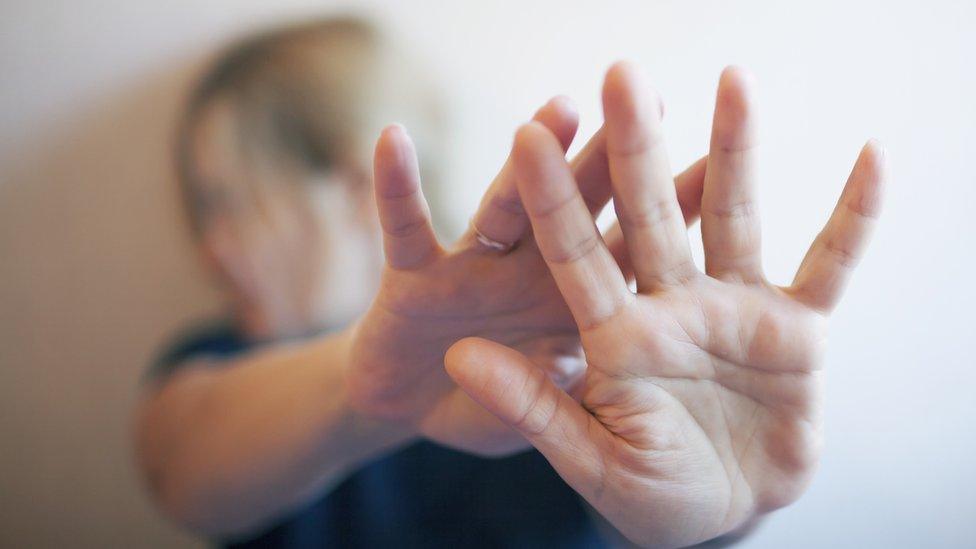Theresa May says Domestic Abuse Bill 'once-in-a-generation opportunity'
- Published

Proposed laws on domestic abuse are a "once-in-a-generation opportunity" to help victims, Theresa May has said in her first speech since resigning as PM.
Mrs May's government introduced the Domestic Abuse Bill in July, but its progress was halted when Prime Minister Boris Johnson suspended Parliament.
The bill is now having its second reading after the Commons resumed business.
Campaigners said the bill was missing key elements to protect victims.
During the debate, Labour MP Rosie Duffield received a standing ovation after telling MPs about her own experience of domestic abuse.
Speaking from the backbenches for the first time since 1998, Mrs May described the bill as a "landmark piece of legislation".
"It's been described by government, and indeed by charities and others involved with working with the victims of domestic abuse, as a once-in-a-generation opportunity to make sure we take a step change in the approach we take to supporting victims and to dealing with domestic abuse," she said.
She added that it was "imperative" the bill became law, arguing it would "improve people's lives".
The bill proposes the first government definition of domestic abuse, including financial abuse and controlling and manipulative non-physical behaviour.
Ms Duffield, the MP for Canterbury, urged others to come forward if it was safe to do so, after recounting her own experience of coercive control.
Labour MP Rosie Duffield: "Sometimes there are no bruises"
She said misleading depictions appeared on TV that perpetuated stereotypes.
"Housing estates, working-class families, drunk men coming home from the pub, women surrounded by children and a sequence of shouting followed by immediate physical violence or assault," she said.
"But the soap opera scenes only tend to focus on one or two aspects of a much bigger and more complex picture."
She said abuse was not only about physical actions, adding "sometimes there are no bruises".
Almost two million adults in England and Wales are thought to be victims of domestic abuse every year.
'Substantial funding needed'
Local authority spending on refuges fell from £31m in 2010 to £23m in 2017.
Charities say there is a severe lack of services in many places, leading to victims being turned away.
Sandra Horley, chief executive of the charity Refuge, said it was "essential" that the bill included statutory funding for refuges.
"Women must be able to flee their violent partners and find safety," she added.
Women's Aid said the bill would only be successful if it was supported by "substantial funding" for services.
"The law also leaves behind some of the most vulnerable women with insecure immigration status, who are often barred from accessing help and support," Lucy Hadley, the charity's campaigns and public affairs manager, said.
- Published30 September 2019

- Published1 October 2019

- Published27 September 2019
